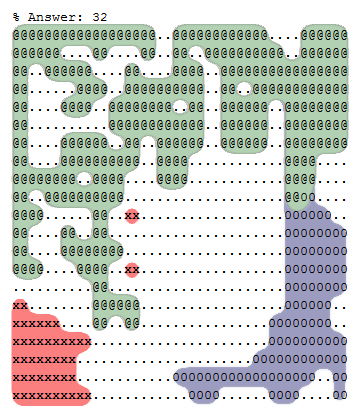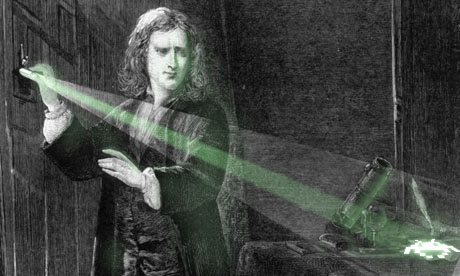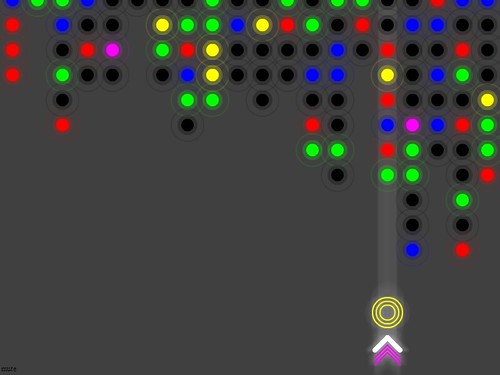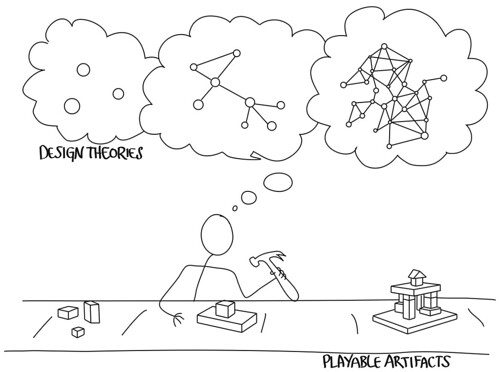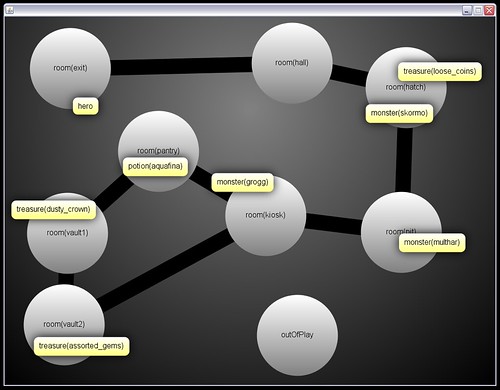A Map Generation Speedrun with Answer Set Programming
There’s nothing really special about this map-looking thing, other than that you can’t get from the top-left corner to the bottom-right corner in less than 42 steps (I looks to take 56 or so). What is special here is how quickly we’re going to develop a flexible, style-ready generator for it. Set the clock for 50 lines-of-code, and let’s get started.
That’s right, we’re going to write this map generator right here in the blog post. If you want to follow along at home, download Clingo (a state-of-the-art answer set solver) and fire up your favorite text editor.

